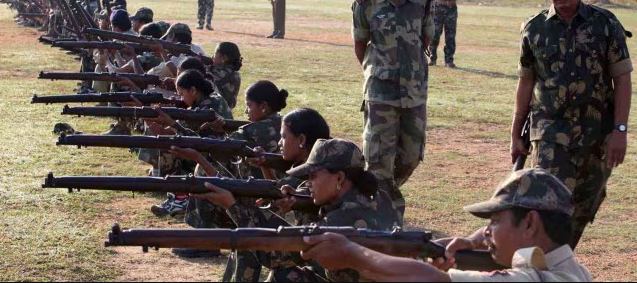Union Home Minister Amit Shah has accused the Opposition’s Vice Presidential candidate, Justice B Sudershan Reddy (retd), of “supporting Naxalism” through a Supreme Court judgment that halted the state-backed Salwa Judum movement in Chhattisgarh. The controversy has revived debate around one of the most significant rulings on state response to insurgency in India.
What was the Salwa Judum movement?
Launched in 2005, Salwa Judum was a state-supported vigilante campaign against Maoists in Chhattisgarh. Villagers were armed and mobilized as Special Police Officers (SPOs) to aid security forces in combating Naxal insurgents. However, human rights groups accused the movement of large-scale abuses, including forced displacement, arson, and extra-judicial killings.
The context of the case
In 2007, petitions were filed before the Supreme Court challenging the constitutionality of Salwa Judum and the appointment of poorly trained tribal youths as SPOs. The petitioners argued that arming civilians violated fundamental rights and led to grave human rights violations.
The state’s argument
The Chhattisgarh government defended Salwa Judum, claiming that appointing SPOs was a necessary counter-insurgency strategy. It argued that Maoists posed an existential threat to governance, and the involvement of local youth provided crucial support to security forces in hostile terrain.
The Supreme Court’s ruling
In July 2011, a two-judge Bench led by Justice B Sudershan Reddy and Justice S S Nijjar declared the appointment of SPOs unconstitutional. The Court held that arming untrained tribal youth endangered both the recruits and society, violated Articles 14 and 21 of the Constitution, and reflected an abdication of the state’s responsibility to maintain law and order through professional policing.
The judgment ordered the immediate disbanding of SPOs, directed the recovery of firearms, and prohibited the state from funding Salwa Judum. The ruling was hailed internationally as a landmark verdict upholding constitutional rights but criticized by some as weakening the state’s fight against Maoists.
Amit Shah’s allegation
Referring to this judgment, Amit Shah accused Justice Reddy of “supporting Naxalism” by allegedly restricting the state’s ability to counter Maoists. Shah’s remarks have ignited political debate ahead of the Vice Presidential elections, with the Opposition defending Reddy’s record as one of protecting the Constitution and civil liberties.

